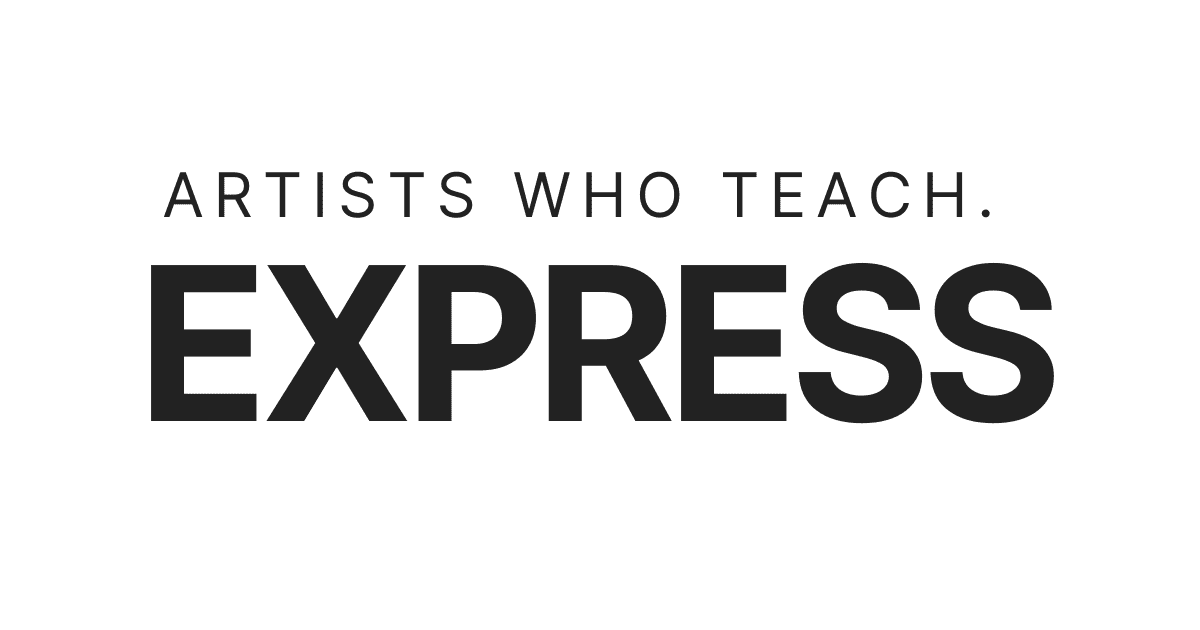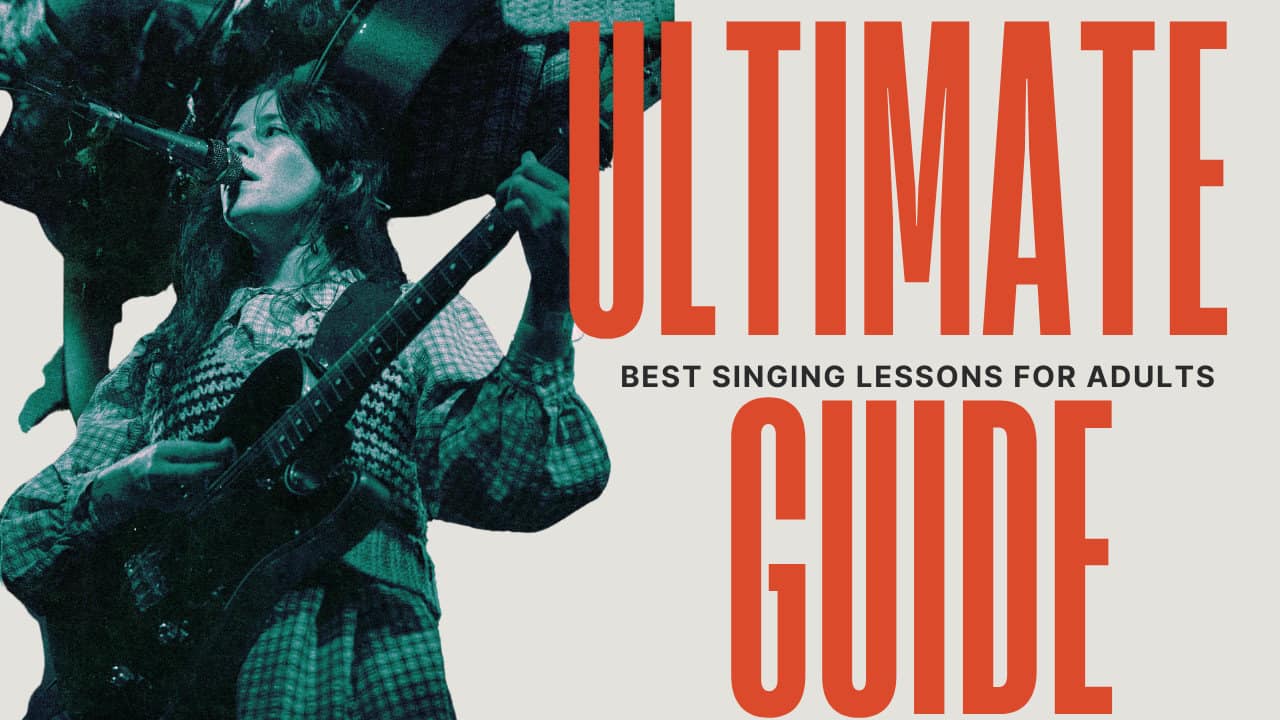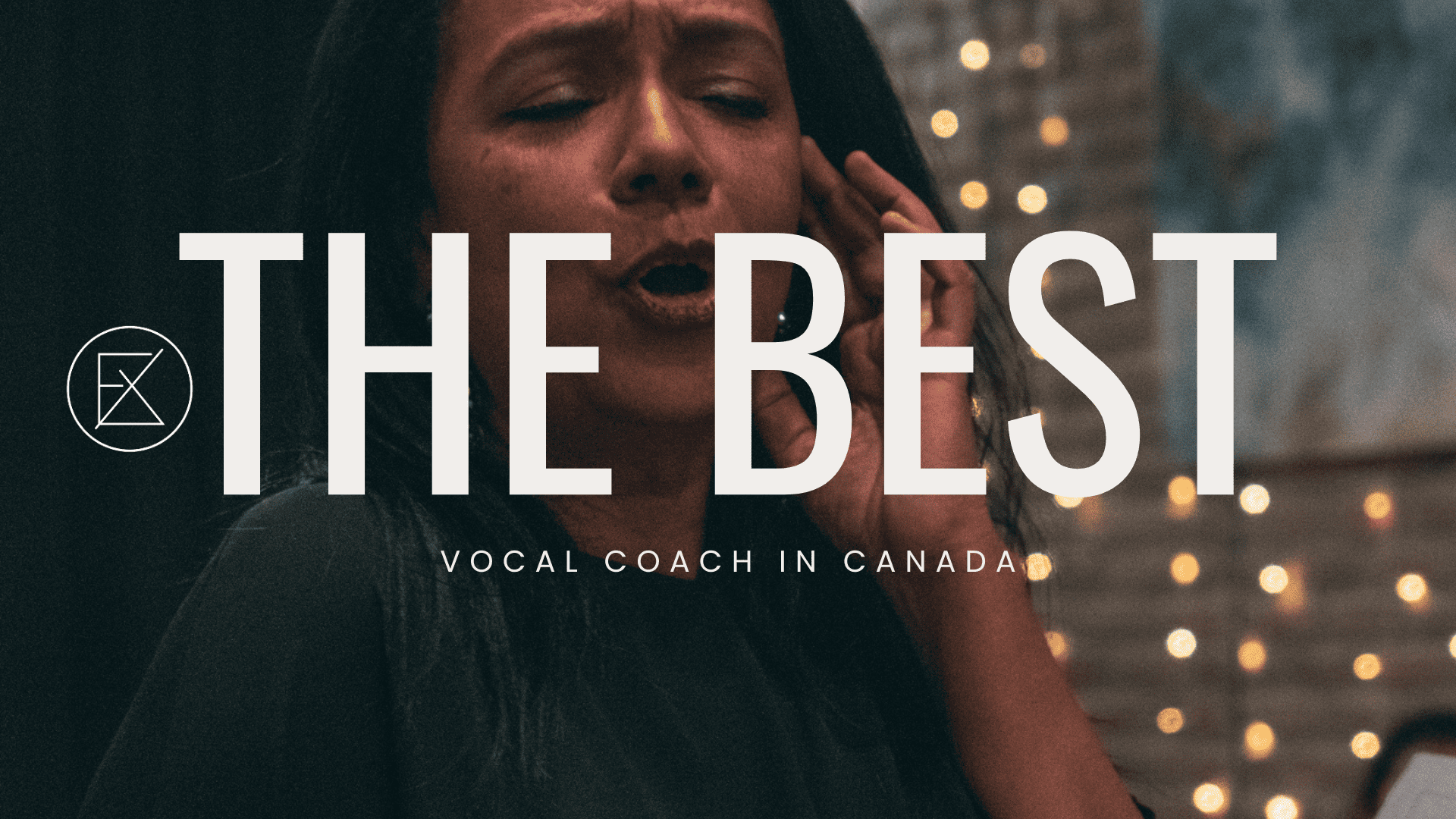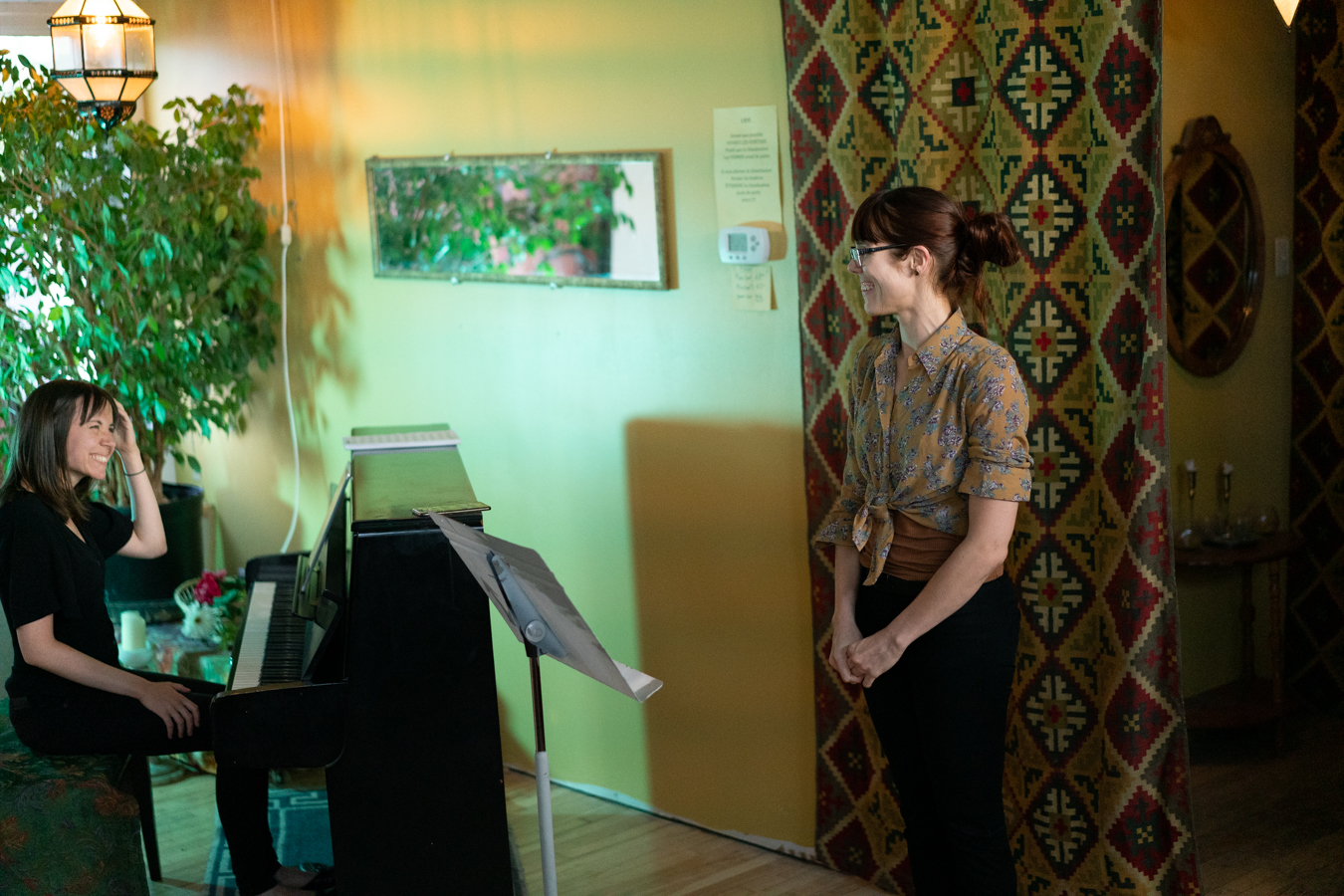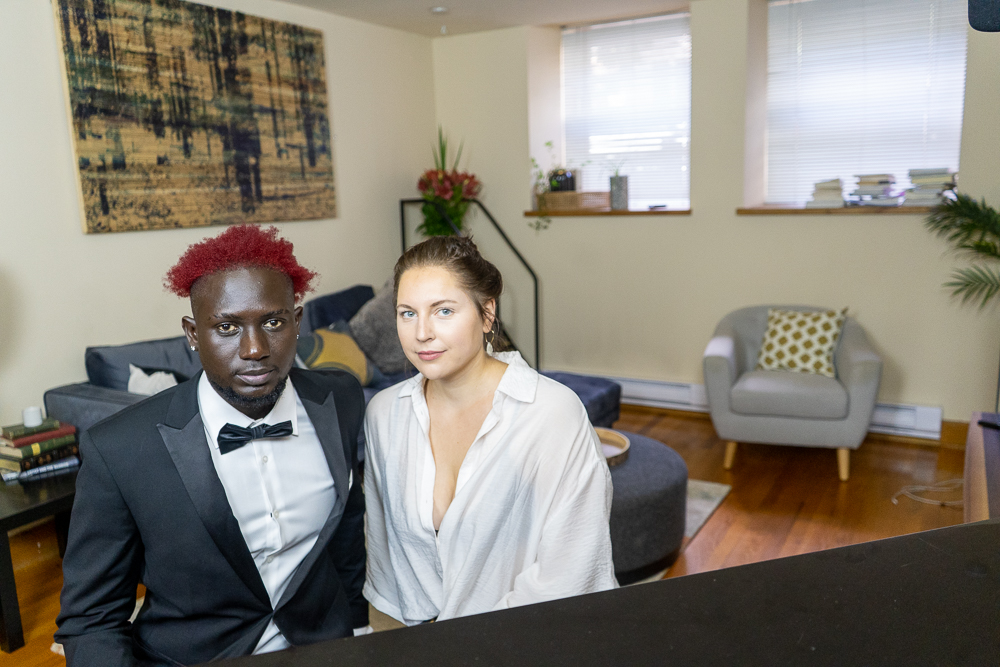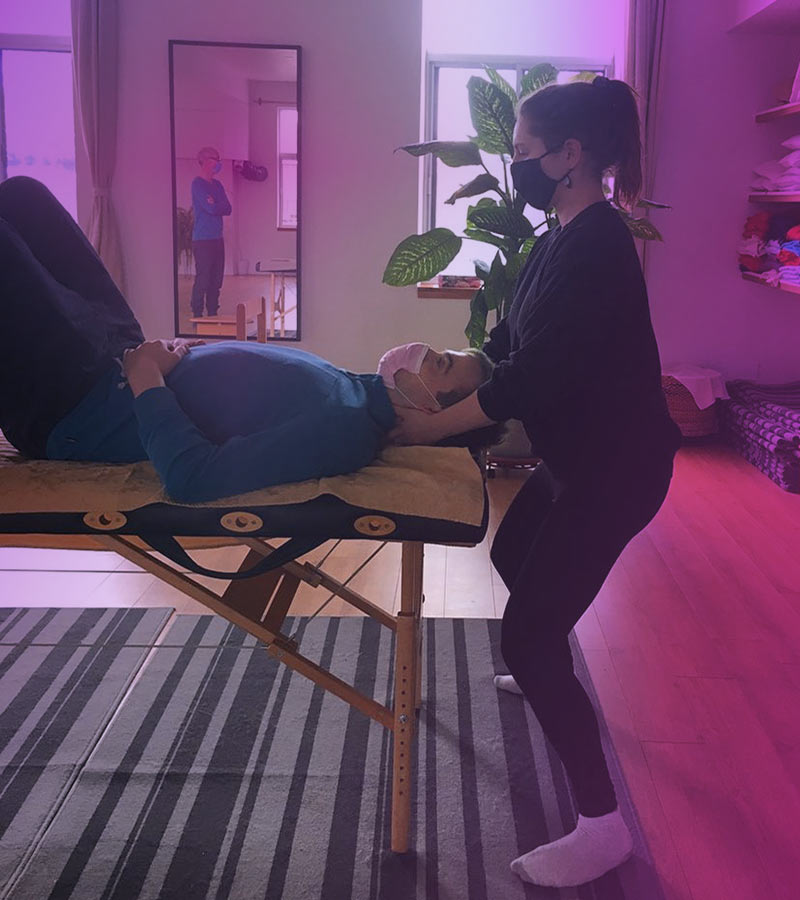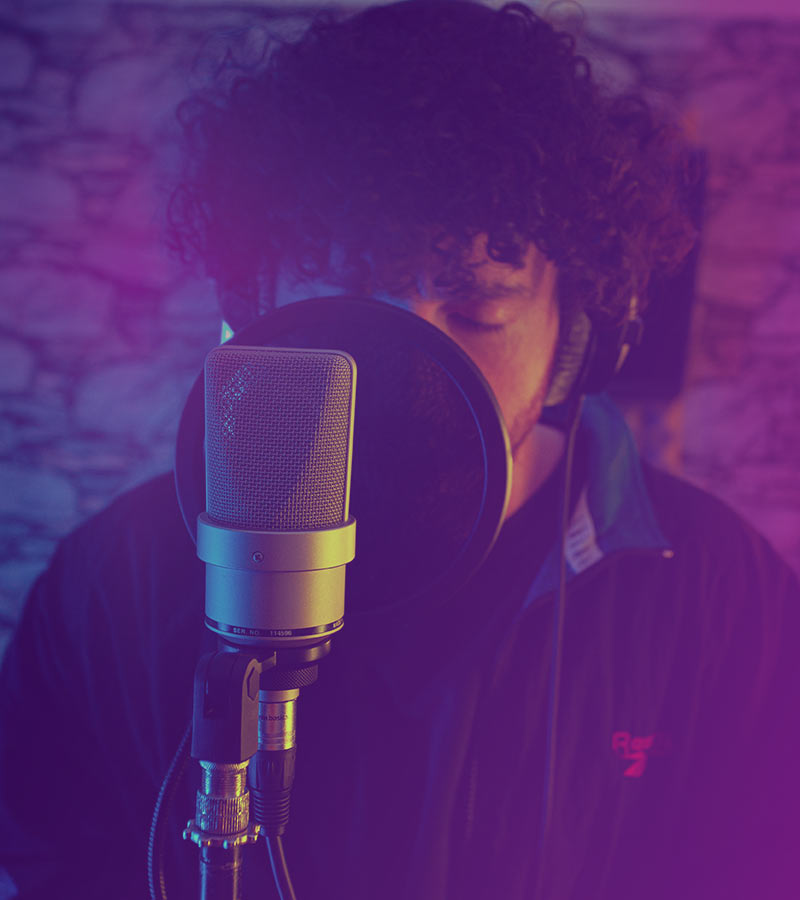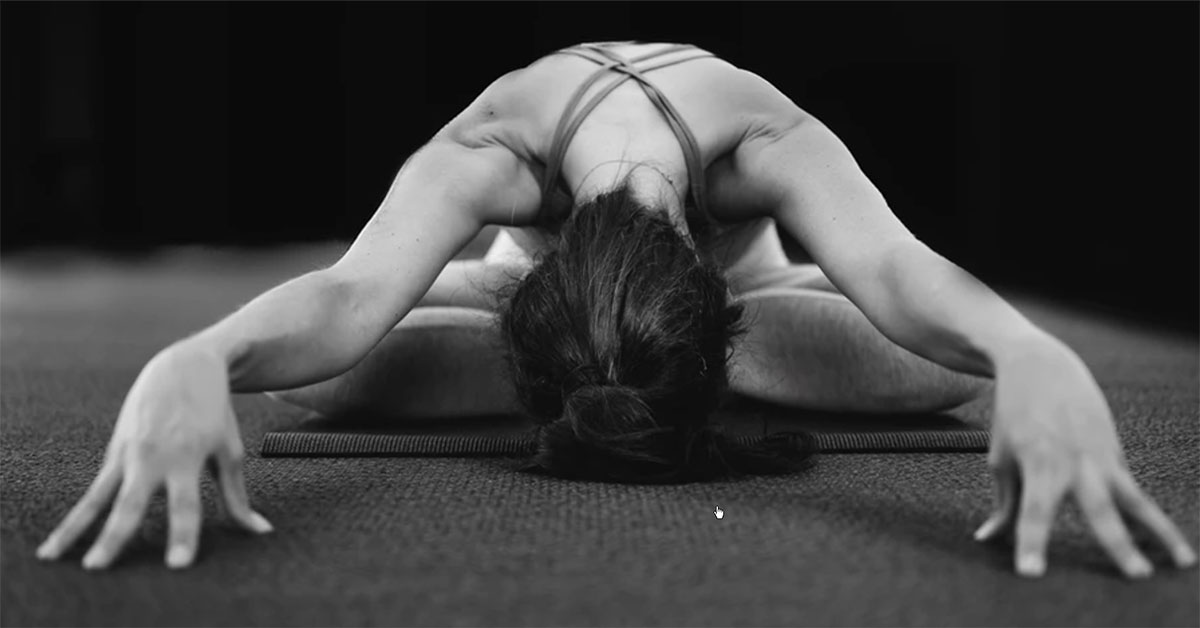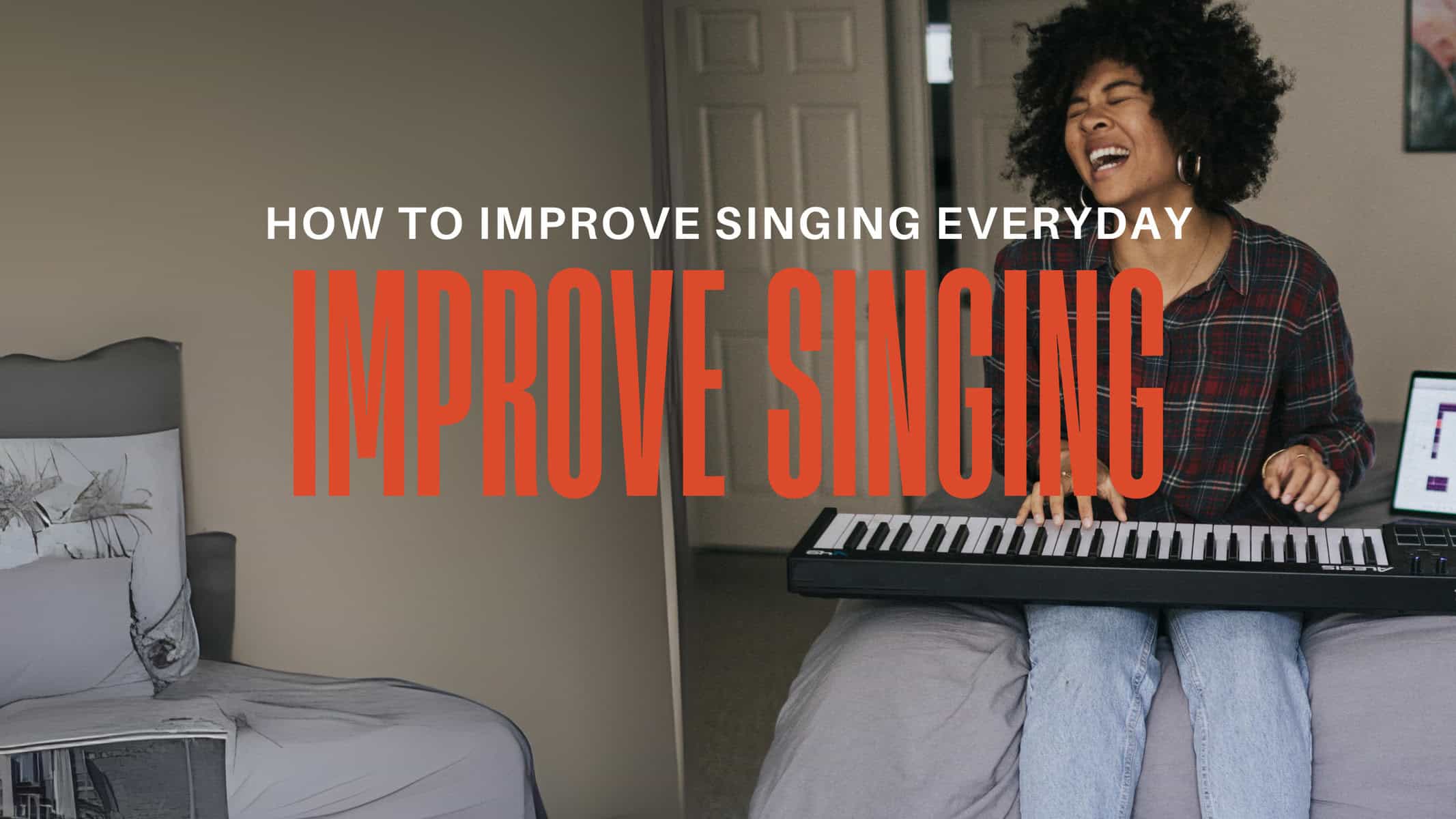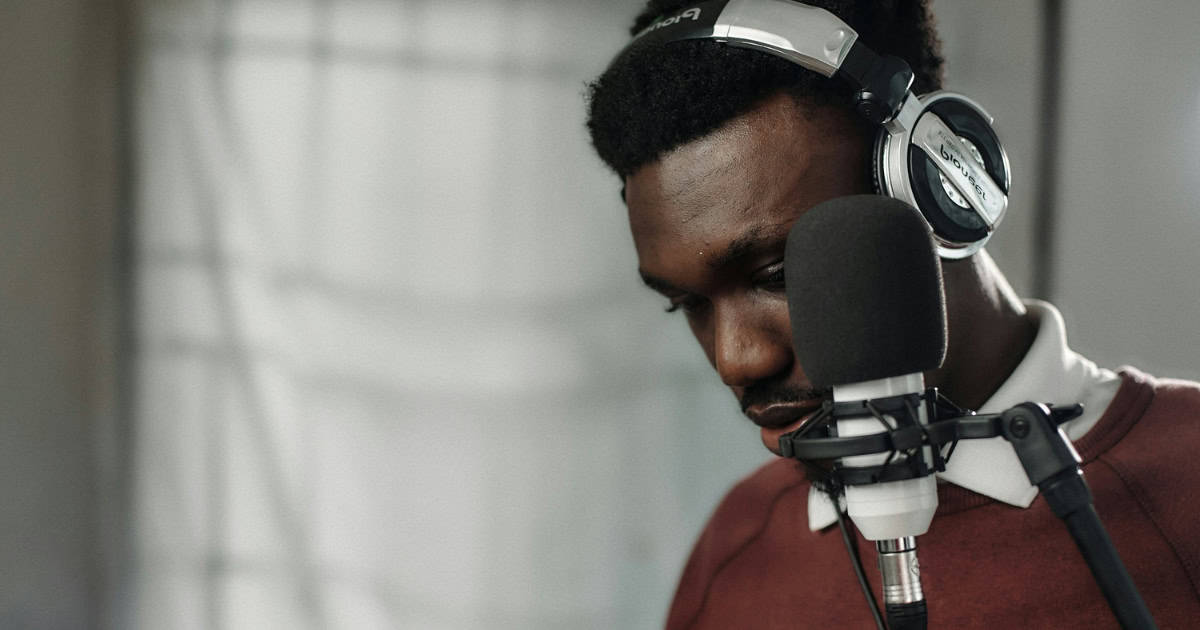Table of Contents
Taking up singing lessons as a child or an adult might feel a bit scary at first, but we’ve put together this ultimate guide to finding the best singing lessons for adults according to where you live, the genre of music you are into, and your level! Perhaps in the past it was overwhelming trying to choose great teachers and start your first lesson, but no longer!
Our guide to adult singing lessons is here to make things easier and show you all the cool options out there. Whether you’re into one-on-one sessions where singing technique is drilled down on or want to nail down specific styles like musical theatre or pop, we’ve got your back in finding the perfect fit for your voice and different skill levels.
Our Criteria:
- Expertise of the Coaches
- Programming and Teacher Options Catered to Adults
- Opportunities for Recording and Performances
- Cost and Schedule Flexibility
- Group Lessons v. Private Voice Lessons
Group Lessons v. Private Voice Lessons
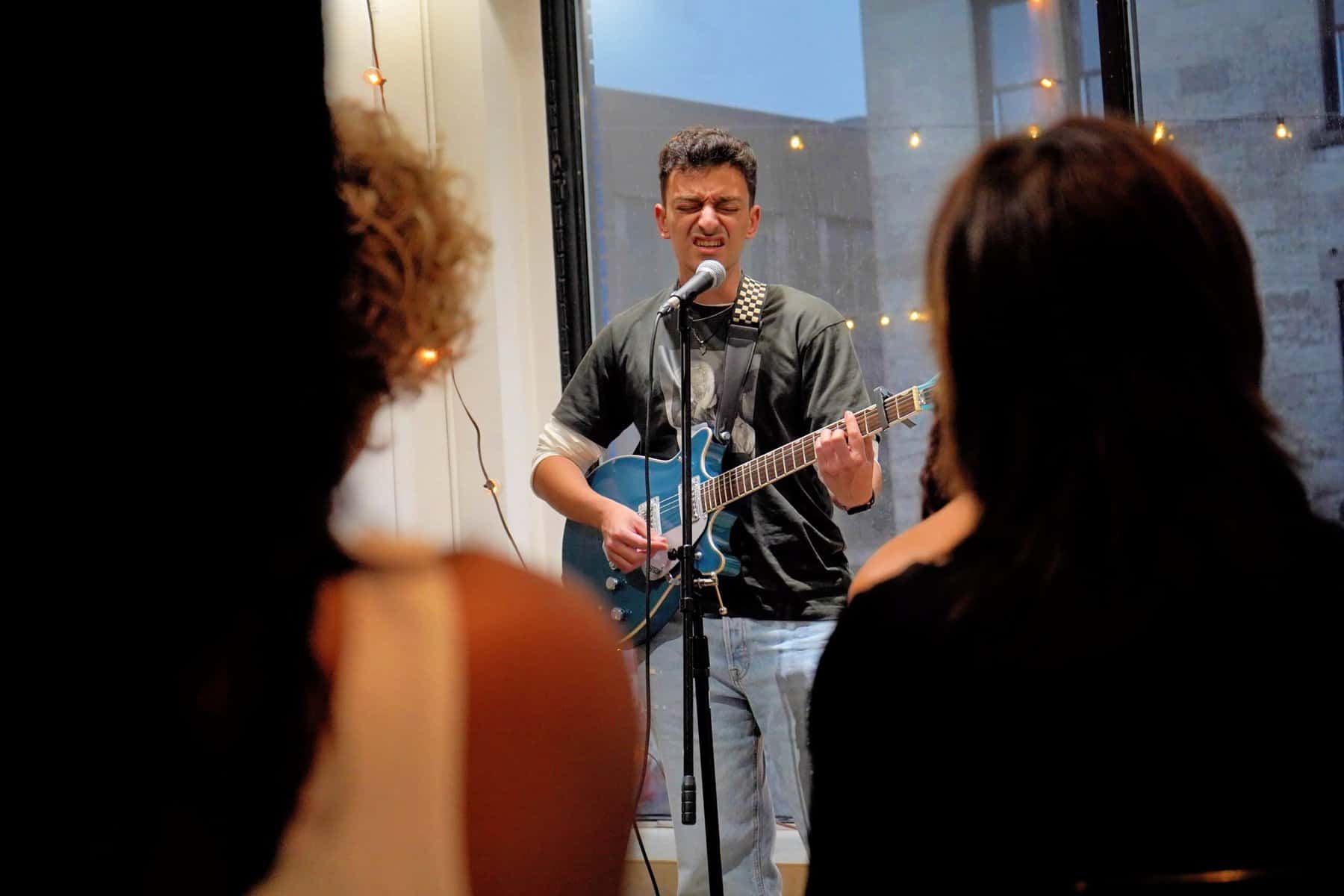
First things first: You need to know what type of lesson is best for you. Group lessons are very different from private singing lessons when it comes to what you can expect to takeaway for your time and dollar. Whether you prefer the community spirit of group lessons or the individualized attention of private sessions, both avenues offer valuable opportunities for growth and development in each stage of your singing journey.
Group Singing Lessons

Group singing lessons and private sessions each offer unique advantages depending on your learning style and preferences. Group lessons provide a dynamic environment where you can learn from peers, build camaraderie, and gain confidence in performing in front of others. It’s a great option for those who thrive in social settings and enjoy the energy of a group.
We never suggest group lessons for students who are looking to seriously improve their singing technique or who notice pain when they sing, as group lessons will not be able to hone in on your technical problems.
Takeaways:
- Can be more comfortable for nervous singers
- Its always fun to sing with others!
- Cost effective
Private Singing Lessons

On the other hand, private sessions offer personalized attention tailored specifically to your needs and skill level. With one-on-one instruction, you can progress at your own pace, focus on areas that need improvement, and receive immediate feedback from the instructor. Despite a price point that exceeds that of group classes, individualized focus and customized nature of these sessions make them worth the additional expenditure.
Takeaways:
- Personalized attention
- Tailored lessons to your specific needs and goals
- Faster progress in vocal technique
- Increased confidence for singing on stage
Overall Top Winners
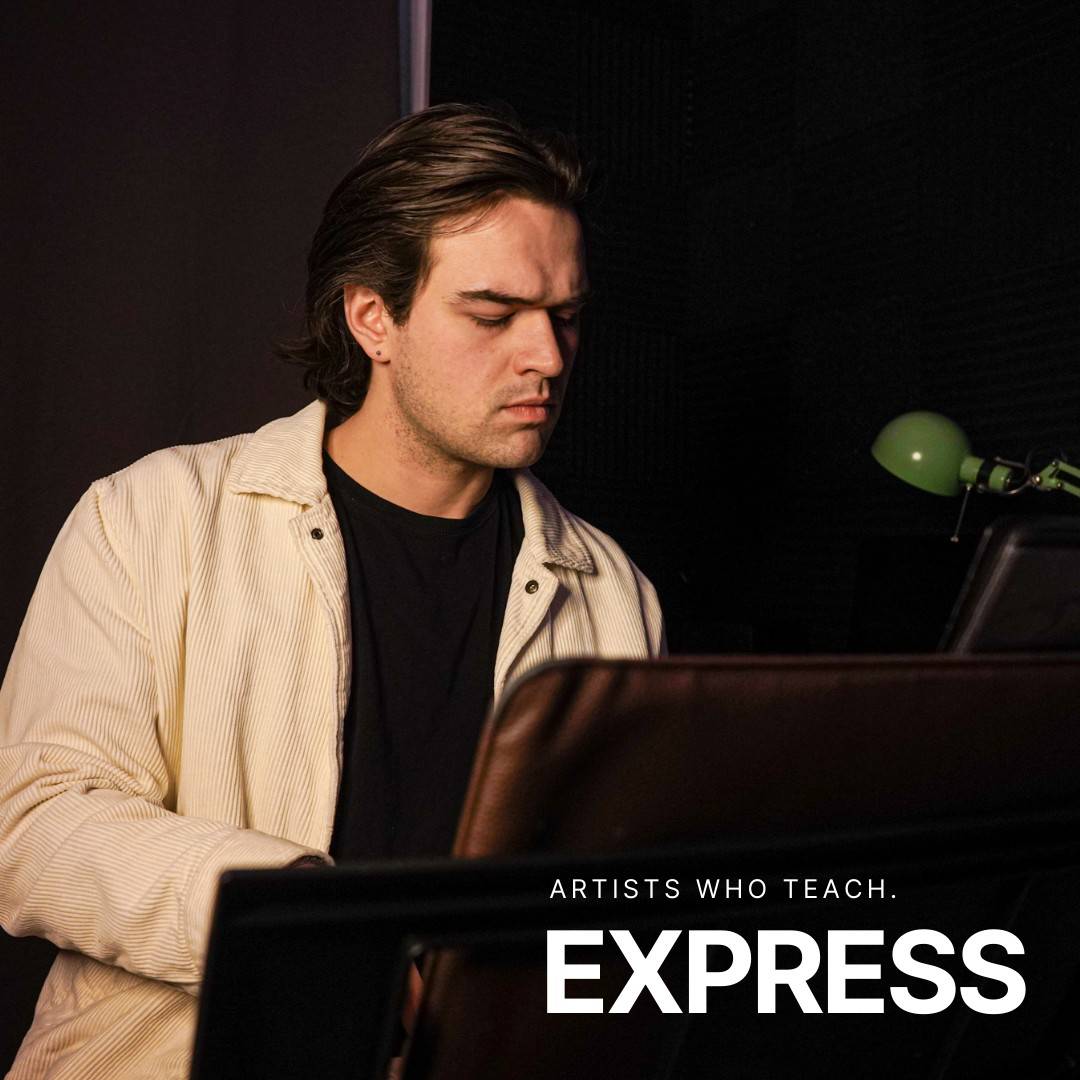
Best Private Singing Lessons: Express Voice Studio
Express Voice Studio distinguishes itself from other music schools by building its list of teachers through an auditioned process. Not just “singing teachers,” Express hand picks their curated list of expert instructors – their “Artists Who Teach”– based on their skill, unique approach to teaching music and artistry, and capacity to inspire students through their own music and achievements as an artist.
Although the music school welcomes kids ages 8+, their platform was specifically designed to become the only music school dedicated to giving adults a menu choices. From the list of emerging artists one can learn from, classes range from guitar to singing, to self producing with DAWs, to beat boxing. This is really your one-stop-shop for the vocal arts and its related musical fields.
Coaches range from rock singers to rnb and opera experts, each with their own areas of mastery. Often coaches are such versatile artists that students are able to take multiple types of classes from one teacher! These offerings ensure that singers at all levels, from novices to seasoned performers, can discover and play with their voice with an instructor who plays instruments, knows how to perform, and can imbue confidence in their students!
Pros
- Local Artists: Your Coach is A Working Canadian Artist
- Learn Any Style: Wide range of Artist singing teachers with varying expertise to pick from
- Achieve Your Goals: Customized individual lessons
- Become A Versatile Musician: Possibility to learn supplementary skills like songwriting and piano
- Ease of Access: Online and in person lessons available
- Locations Near You: Various locations across Montreal and Singing Lessons Toronto
- Schedule Flexibility: ‘No contract’ approach that caters to various learning paces and styles
Cons
- Not available in person in other cities in Canada yet
- Limited number of concerts for students to participate in
- Higher cost than group classes
Prices
Prices are set by the teachers, so cost will range depending on your choice of artist.
Expect to pay between $40-$120 depending on duration, teacher, and class type.
Express Voice Studio Locations
Best Group Singing Lessons: Royal Conservatory of Music Toronto

Many music schools across Canada offer excellent group singing lessons. However, one standout institution known for its group singing programs is the Royal Conservatory of Music in Toronto.
The Royal Conservatory offers a wide range of group singing classes for adults, including options for various levels and interests. Their instructors are highly trained, and the curriculum is designed to foster a supportive and collaborative learning environment.
Pros
- Prestigious Institution: The Royal Conservatory of Music is well-respected internationally, ensuring high-quality instruction and resources.
- Experienced Instructors: You can expect to learn from highly qualified instructors with extensive experience in vocal instruction.
- Collaborative Learning Environment: Group lessons provide opportunities to learn from and collaborate with peers, fostering a supportive community.
- Performance Opportunities: The Conservatory often organizes recitals, concerts, and other performance opportunities where students can showcase their skills.
Cons
- Potentially Higher Cost: As a prestigious institution, tuition fees may be higher compared to other group offerings or community programs.
- Limited Class Availability: Popular classes may fill up quickly, limiting your options for scheduling.
- Less Individual Attention: In a group setting, instructors may have less time to provide personalized feedback compared to working in private
- Varying Skill Levels: Group classes may include students with different skill levels, which could affect the pace and depth of instruction.
Prices
The pricing for group singing lessons at the Royal Conservatory of Music can vary based on factors such as the length and frequency of classes, the instructor’s qualifications, and any additional fees for materials or performances. It’s best to contact the Conservatory directly or visit their website for the most up-to-date pricing information and to inquire about any available discounts or scholarships.
Best Singing Lessons By City

No matter where you live in Canada, there is a music school or singing coach available to you! The trick is finding the best choice. Dive in here to see who we chose as our top picks for each city.
Top Pick In Calgary: Rockit Vocal Studios
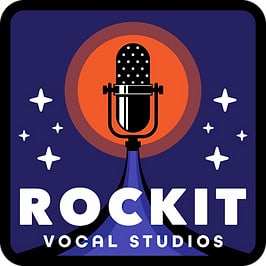
Rockit Vocal Studios is not directly within Calgary, it’s a 20-minute drive northwest of the city. However, it is well worth the drive. Looking into the offerings of singing lessons in Calgary, one would notice that the city mostly offers individual teachers giving lessons whereas other cities have more “music schools” with a large number of singing coaches available.
Because of this anomaly in Calgary, we are selecting an individual coach as our top choice for voice lessons. Rockit’s founder, Emma, is the singing teacher at this location and though we have not personally taken a lesson with her, I can assure you based on her vibe we would! At Rockit, you’ll find an extensive menu of private voice lessons available in addition to a weekly vocal workout as a group class!.
She has over 20 years of experience in vocal coaching, having worked with beginners to professional musicians and voice artists. Her students constantly praise her knack for engaging and making them feel at ease, as well as the creative methods she employs to get students to open up and sing confidently.
Pros
- Private Classes Available
- Group Lessons Available
- Highly Trained Coach
- Flexible packages and pricing
Cons
- Outside of the city
- Only one coach available
- Limited availability
Prices
Single sessions online or in person will cost you $55 for 30 minutes or $110 for an hour. This rate gets discounted when you pay for four sessions at a time though, so check out the packages!
Best Adult Singing Lessons In Edmonton: Resonate Music School & Studio

Resonate Music School is unique for the incorporation of a recording studio with their music school. This is great in particular for older students who want to track their improvement and have a recording studio experience! With over 35 instructors, you are not limited for choice of teacher. Their lessons do not follow a specific curriculum which we like, because personalized lessons tailored to your specific needs and goals are essential as an adult- everyone is different!
Pros
- Wide selection of teachers
- Recording Studio & Music School
- Lesson packages are optional, Students can do drop in lessons
- High number of positive reviews
- Sound treated music studios
Cons
- Unclear their criteria for hiring teachers
- Website seems to cater more to kids, so there may be a high volume of kids at this school
Prices
Lessons with Resonate are not clearly outlined for pricing on their website. It will be necessary to call or contact their institution.
Top Pick For Vancouver: Courtenay Ennis Vocal Studio
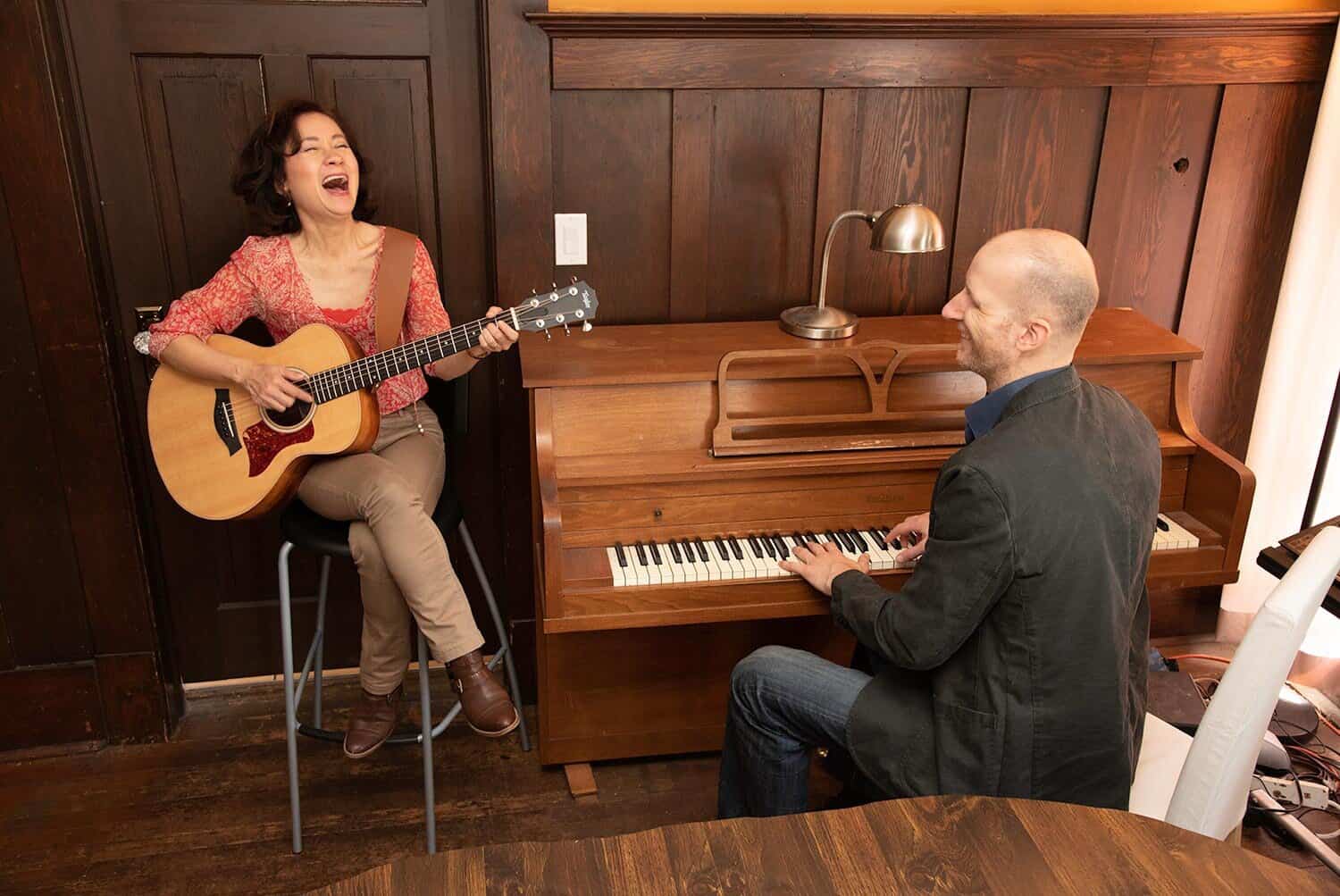
Courtenay Ennis Vocal Studio is our top pick in Vancouver for a number of reasons. Similar to Calgary, this city’s singing lesson landscape is fuelled by individual vocal coaches running their solo business. The Courtenay Ennis studio offers a dynamic and personalized approach to singing lessons, with his website covered in student wins and testimonials- most of them adults!
With a focus on technique, expression, and performance skills, students receive tailored guidance to unlock their full vocal potential. Courtenay’s extensive experience in the music industry, coupled with his nurturing teaching style, creates a supportive environment where students can grow and thrive as singers.
Pros
- Private Classes
- Great coaching services for aspiring professionals in Musical Theatre & Recording Arts
- $10 Intro session
- Regular clients receive package discounts
Cons
- Only 16 lesson slots per day
- The most expensive teacher we came across at $200/hour
- Only one coach option to work with
Prices
$200 an Hour
Top Pick In Montreal: Express Voice Studio
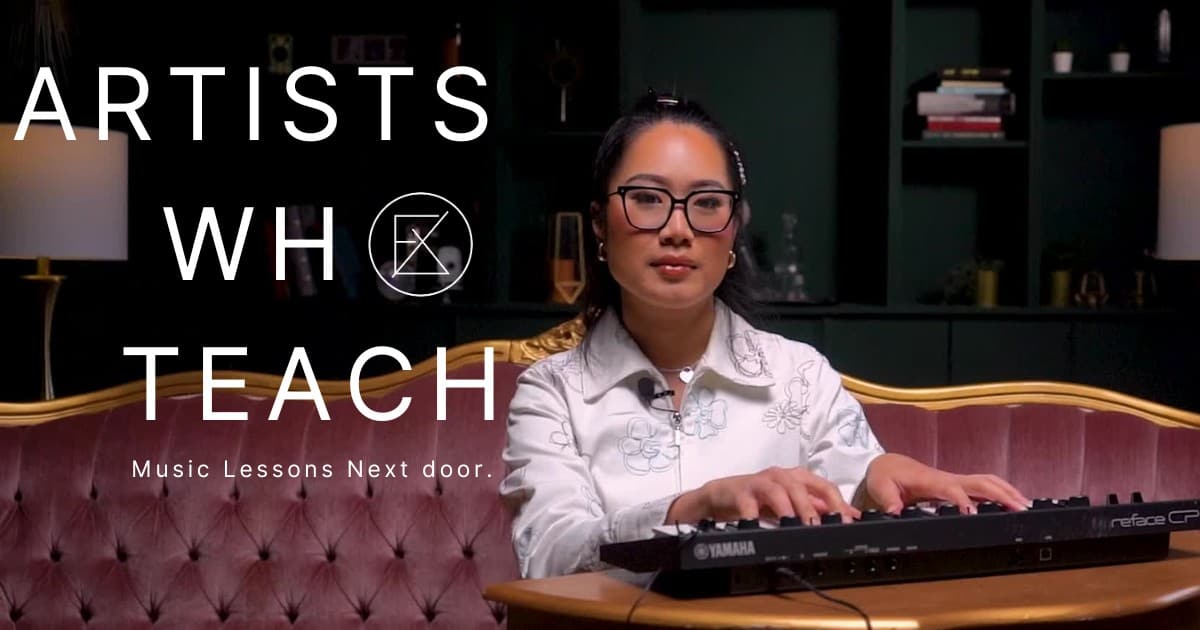
There really is no better choice in Montreal than Express Voice Studio, whose services dominate the business sphere in this city. With over 20 artists to choose from, child and adult students are spoiled for choice. Montreal is arguably the most artistic city in Canada, and those artists have been made available to students through Express.
Here, students are not just another voice in the crowd but receive individualized attention tailored to their specific needs and aspirations. With a team of experienced instructors, Express Voice Studio offers a creative and nurturing environment where students can explore their vocal potential to the fullest.
Pros
- Various locations across the city
- There is an artist of every genre available to learn from
- Performing opportunities through masterclasses and concerts
Cons
- Pricier than other music schools
Prices
Prices start at $40 / half hour lesson and go up to 70-$100/hour lesson depending on the teacher.
Top Pick In Ottawa: Renee Landry

Most of the music schools in Ottawa appear to cater to children, so we’re pulling a stsandout vocal coach for our top pick. In particular, adults looking for singing lessons will love Renee if they are looking to improve technique and sing basically any style except musical theatre or opera.
A classically trained musician, Renée received an Honours Bachelor of Music in Jazz/Soul Vocal Performance from Carleton University, and has worked as a professional musician for over a decade. She has been a vocal coach for the past 10 years, and currently teaches out of her private home studio LAB Studios located in Centretown Ottawa.
Pros
- Central location
- Talented coach
- Private Sessions
Cons
- Pricier than other music schools
- Only one coach to work with
Prices
Prices start at $90/hour.
Best Singing Lessons For Adults In Toronto: Dealers Choice

Listen, we’re biased. We feel Express Voice Studio offers something no other music school or instructor offers in Toronto: A curated, auditioned roster of emerging artists for private sessions. We stand on the quality and artistic vibrancy of our artists: these are not just teachers, these are active artists in their industry made available to you for lessons.
That said, if you are looking for more of a traditional music school vibe, we loved this article reviewing some of the other music schools available in Toronto. Below are some of the highlights from those schools we liked and want to call out!
Pros
- Singers Edge: Great for aspiring professionals wanting to make industry connections
- Ryan Luchuck: Great choice for students who want to perform a LOT
Cons
- We can’t attest to the caliber of the teachers, as their vetting and hiring process is not disclosed on their websites
Best Online singing Lessons For Adults
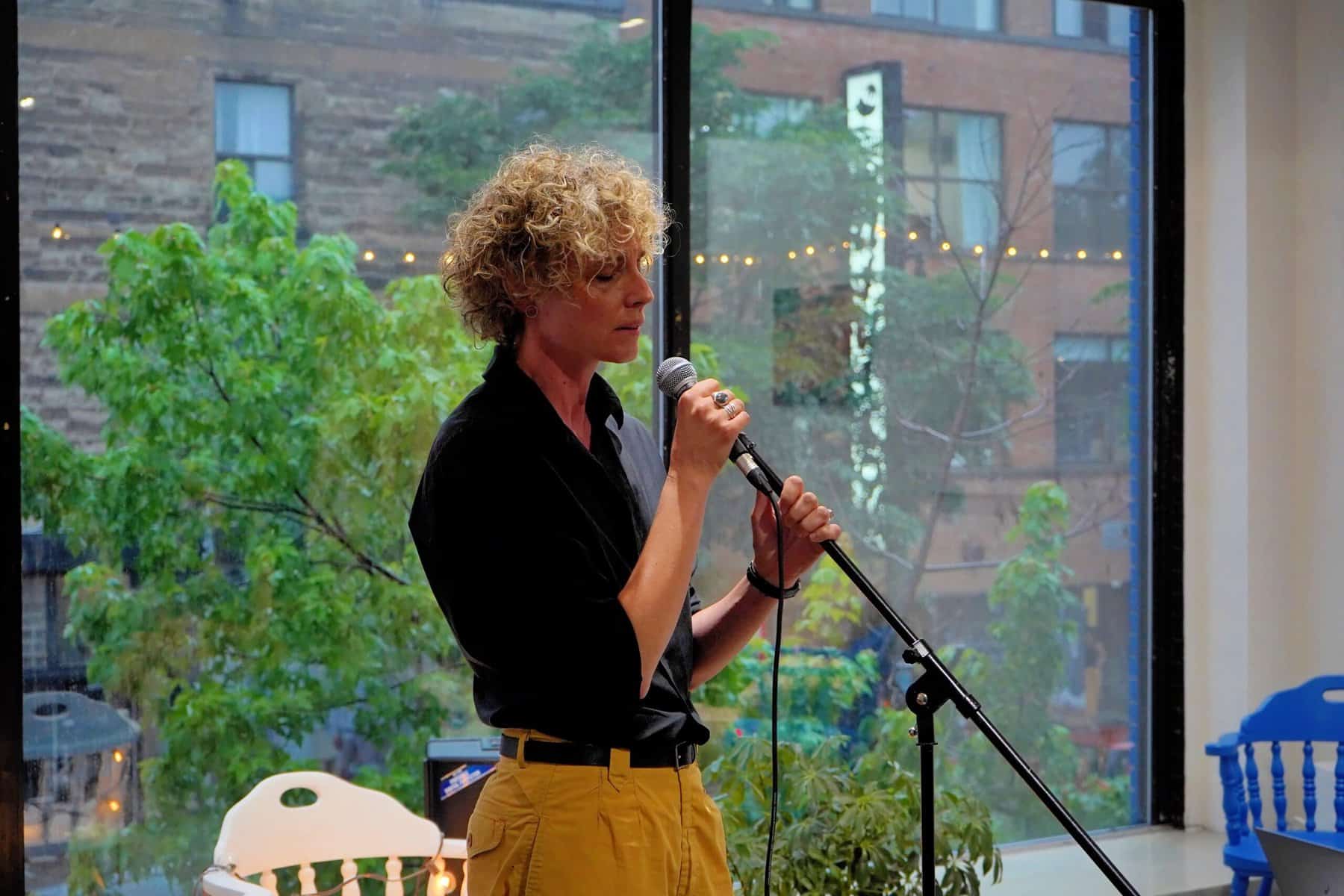
Online singing lessons with Express Voice Studio offer a convenient and immersive learning experience for aspiring vocalists. Students can access high-quality instruction from artists across the country now from the comfort of their own homes, eliminating the need for travel and scheduling constraints.
Select on of the artists from their roster and jump into the work! These online lessons maintain the same level of personalized attention and tailored guidance as in-person sessions. Whether you’re a beginner honing your technique or an experienced singer refining your skills, Express Voice Studio’s online lessons provide a comprehensive curriculum designed to meet your specific needs and goals.
With flexible scheduling options and interactive tools for feedback and progress tracking, students can embark on their vocal journey with confidence and convenience, all while benefiting from the expertise and support of a trusted studio.
Summary
In conclusion, embarking on a journey to improve your singing as an adult can be both exciting and daunting. However, armed with the comprehensive guide provided here, navigating the landscape of singing lessons becomes a far less intimidating task.
Whether you opt for the personalized attention of private lessons or the dynamic environment of group classes, the key is finding the right fit for your individual needs and aspirations. With careful consideration of factors such as expertise, programming options, opportunities for recording and performances, cost, and schedule flexibility, you can confidently take the first steps towards honing your vocal talents.

The top winners
Those highlighted in this guide – Express Voice Studio for private lessons and Royal Conservatory of Music Toronto for group classes – offer exceptional opportunities for adult learners to grow and excel in their vocal pursuits. Additionally, for those seeking lessons in specific cities across Canada, there are standout options such as Rockit Vocal Studios in Calgary, Resonate Music School & Studio in Edmonton, Courtenay Ennis Vocal Studio in Vancouver, and of course, Express Voice Studio in Montreal and Toronto.
Moreover, with the rise of online learning platforms like Express Voice Studio, aspiring singers now have the flexibility to access high-quality instruction from anywhere, further enhancing the accessibility and convenience of pursuing their musical passions.
In essence, the journey to mastering vocal prowess is a deeply personal one, but with the right guidance and resources, you can unlock your full potential as a singer. So, whether you’re a beginner looking to explore your voice or a seasoned performer aiming to refine your skills, let this guide serve as your roadmap to success in the world of singing lessons for adults.
